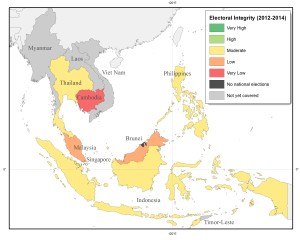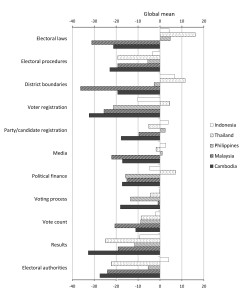Elections in Southeast Asia occur in a wide spectrum of regimes, with varying degrees of political freedoms. The one-party states of Viet Nam and Lao PDR hold national elections with some degree of (intra-party) competition. The electoral autocracies in Singapore, Malaysia, and Cambodia – some more hegemonic, some more competitive – call to the polls with varying degrees of contestation. Elections in the Philippines have a history of more than 100 years, while Myanmar is just emerging from some decades of dictatorship. Indonesia and Timor-Leste seem to be on a remarkable and fast trajectory towards liberal democracy, while Thailand – after what now seems as an interim period of electoral democracy – has slid back into dictatorship once more. Finally, Brunei is one of only five states globally that does not provide for any representative national election to the legislature at all.[1]
The meaning of elections varies considerably in such a diverse group of countries, not least due to the fact that some elections provide more choices than others. But are there any common trends discernible among Southeast Asian countries?
Read more…





